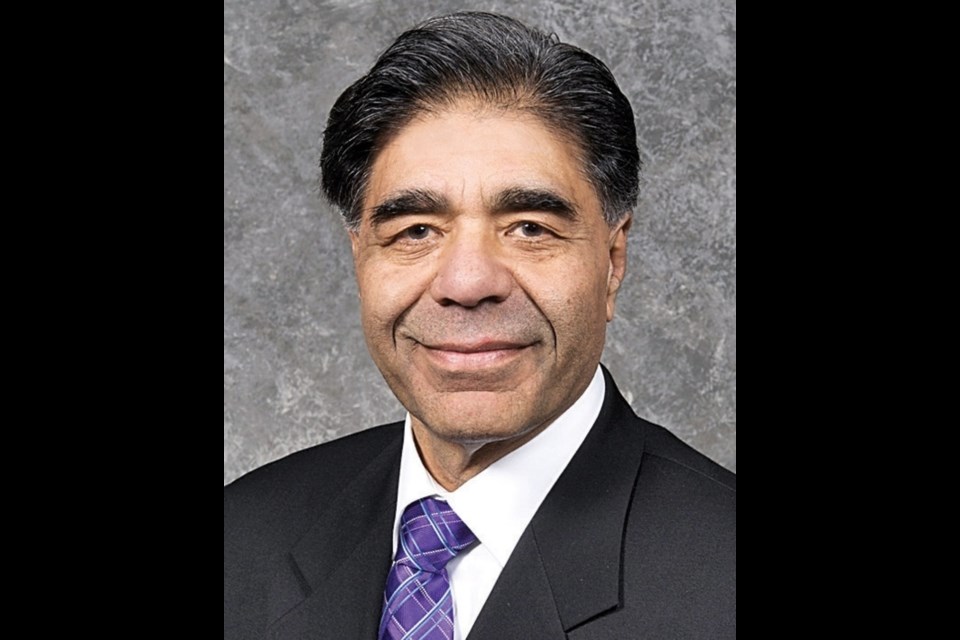Although two Burnaby city councillors on the Metro Vancouver board of directors voted against giving themselves a 15 per cent raise, they actually supported it. They just didn’t like the other half of the proposal.
On March 23, the board decided to increase its pay to directors by 15 per cent as of Jan. 1, 2019. The move is to offset the federal government’s decision to eliminate a one-third, non-taxable benefit the directors have been receiving. The end result is they get the same take-home pay as they receive now. But it is also a $131,333 hit to the regional district’s budget.
The vote also authorized implementation of a retirement allowance for current directors leaving the board. It will be retroactive to Jan. 1, 2007 at a rate of about $1,100 per yer of service. In the future, it will be about $1,500 a year and there will be no cap on the amount they can receive.
Councillors Sav Dhaliwal and Colleen Jordan, Burnaby’s representatives on the board, both voted against the bylaw. While they backed the pay raise, they opposed the retirement payment because that type of compensation should be left up to the individual councils, said Dhaliwal.
He agreed with the raise because local elected officials are underpaid and the federal government’s decision would mean a loss in net pay. Directors receive a stipend of $387 for meetings up to four hours and $775 if they go longer.
“(Being a local elected politician) is a lot of work, and I believe it shouldn’t just be for retired people the way it is now. Most of the people on my council are retired because they generally can live with the kind of wages that the councillors get,” said Dhaliwal. “If you want to attract some younger, professional people who are interested in managing a city budget, which is a $550 million annual budget (better compensation is needed).
“It’s a fair amount of work. You really need to do your due diligence. You have to read your reports, you have to do your own analysis, you have to do your own investigation, you have to look around before you make a decision. It’s important to attract some men and women to local governments who can make a living and raise a family on a salary that they don’t have to worry about doing a second job. It takes away from people’s ability to put in 100 per cent.”
He said the retirement allowance, on the other hand, is an issue that should be dealt with by individuals councils.
“To some extent, cities are already doing that. If some cities aren’t doing that, that’s the place to do it, at your own council table,” said Dhaliwal. “At the board level, it isn’t. I don’t know many boards that give retirement benefits at the board level.”
With several directors not seeking re-election, the retroactive allowances are expected to cost nearly $500,000 this year, and about $65,000 annually in the future.
“It might be justifiable retroactively at the council level, but I don’t see that as a role for the district to fill in,” said Dhaliwal, who was baffled as to why the two decisions were combined into one vote.
“I don’t see the connection … to what the federal government has done,” said Dhaliwal.
Jordan said there shouldn’t be a problem for Metro Vancouver to absorb the costs of the two moves.
“There’s probably enough leeway in the budget that it won’t make any significant impact. As noted, we have a very big number for our budget, and there’s contingencies and there’s surpluses, so it’s not going to make a difference,” said Jordan. “The tax rate is set, so it probably won’t make any difference in that. A half million dollars in a billion dollar budget is not going to make a difference.”
The Metro Vancouver decision was assailed by the Canadian Taxpayers Federation (CTF).
“This is a slap in the face to taxpayers and voters in the Metro Vancouver region,” Kris Sims, B.C. director of the CTF, told the Delta Optimist. “For these mayors and councillors to vote themselves a pay raise and a retirement bonus at a time when many won’t be running for re-election and facing the voters this fall is both unaccountable and unacceptable. This is the opposite of accountability and transparency.”
Pay raises to compensate elected officials for the federal tax ruling are also being contemplated by local governments. Jordan said Burnaby council hasn’t taken an official position yet, but has asked city staff to find out how much it would cost to make whole the council and mayor’s salaries. The latest available salary numbers for council are for 2016 when Mayor Derek Corrigan made a base salary of $130,000 and the councillors received $59,377.
Giving themselves a similar 15 per cent raise might be a dicey decision for council in an election year like 2018.
“That is a concern people will have,” admitted Dhaliwal. “I personally think it has to be dealt with. It should be taken to the public and say, ‘Here are the reasons why salaries need to be adjusted.’ I don’t believe people are going to say that sort of thing is not necessary, because if they see that suddenly the pay you are bringing in is going to be reduced by 15 per cent, people will understand that. I think it’s justified. I believe us, the elected officials, have to be a little bit more confident in ourselves. This is an area where people are going to support us, or at least we are able to make our case very reasonably.”

Jordan said the timing for such a decision is never right, regardless if it’s an election year or not.
“This whole thing for having to vote for your own raises is never a pleasant part of being a politician. But it happens at every level, so you have to learn to live with it,” Jordan said.



